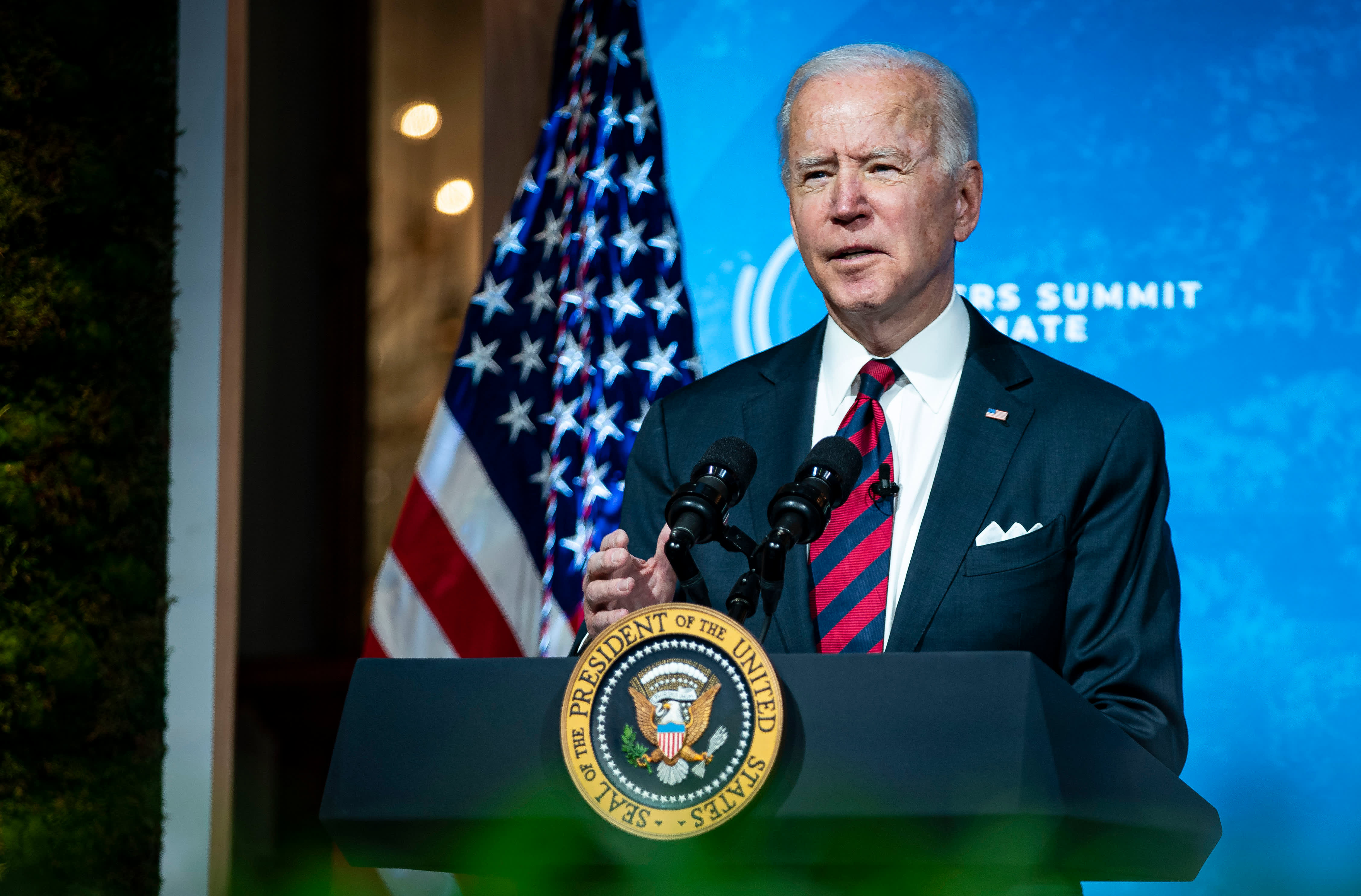
David Wallace-Wells, author of “The Uninhabitable Earth,” questioned if the U.S. had the ability to actually meet President Joe Biden‘s climate pledge of reducing the country’s greenhouse gas emissions by 50% to 52% by 2030.
“The question for me is whether we can even meet these targets because they are unbelievably ambitious given where we are today, and I don’t think we yet have the policy tools or investments necessary to get us there,” said Wallace-Wells.
Biden convened a global summit to urge international cooperation on climate change. The summit represented a chance for the U.S. to rejoin global efforts on climate after former President Donald Trump pulled out of the Paris accord, halted all federal efforts to reduce domestic emissions and rolled back more than 100 environmental regulations to favor fossil fuel production.
Wallace-Wells told CNBC’s “The News with Shepard Smith” that the U.S. is doing what the world has to do as a whole, but ideally, the U.S. would be moving even faster to address climate change.
“Since the U.S. is among the richest countries and among the most technologically advanced, among the most suited to making a fast transition, and because we’ve benefitted the most of any country in the world from the burning fossil fuels in the past, we really should be leading that pace rather than just meeting it,” said the Deputy Editor at Large of “New York Magazine.”
Biden’s new target more than doubles the Obama administration’s prior commitment under the 2015 Paris climate agreement. Nations under the Paris agreement are set to unveil updated emissions targets for the next decade at the U.N. climate conference in Glasgow, Scotland, in November.




